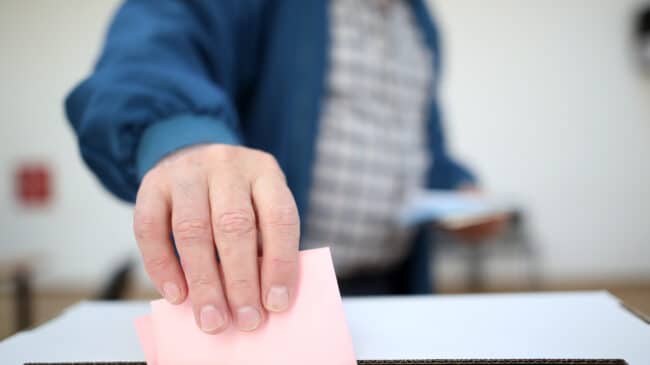Summary
Arizona Proposition 140 would replace Arizona’s current semi-open partisan primary election process with a single open primary. The proposition would also require the Arizona State Legislature or the secretary of state to decide how many candidates would advance from the single open primary to the general election. The proposition may or may not establish ranked-choice voting in certain elections, depending on actions by the legislature or secretary of state. Proposition 140 would affect all elective state and county offices and candidates for the U.S. Senate and for the U.S. House of Representatives. Notably, the proposition has unique implications for elections to the Arizona State House of Representatives because each district elects two members to office rather than one.
Currently, Arizona has a semi-open primary system whereby only registered party members and unaffiliated voters are allowed to participate in each party’s primary elections. Only registered Democrats and unaffiliated voters may vote in Democratic Party primaries, and only Republicans and unaffiliated voters may vote in Republican Party primaries. In most primary elections, the candidate receiving the most votes in each party’s respective primary advances to the general election—one candidate represents each party. In elections to the Arizona State House of Representatives, each district elects two representatives, so more than one candidate may emerge from a party’s primary. Proposition 140 would replace this system with an open primary where all candidates appear on one ballot, regardless of party affiliation.
Under the initiative, a specified number of candidates receiving the most votes would advance to the general election. Proposition 140 does not specify how many candidates will move on to the general election; instead, it gives the Arizona State Legislature until November 1, 2025, to decide. For example, lawmakers could decide that only the top two candidates from the open primary should be included in the general election. Or the legislature could allow up to five general election candidates in most races. In elections to the Arizona State House, the number of general election candidates could range from four to seven. If the legislature does not act by November 1, 2025, the secretary of state will determine how many candidates are allowed to compete in general elections.
Finally, the initiative would establish rank-choice voting in general elections with more than two candidates (or more than four candidates in general elections to the Arizona State House of Representatives). Under rank-choice voting, voters rank their preferred candidates rather than selecting one candidate to receive their votes. If no candidate wins a majority of first-choice votes, the candidate with the fewest votes is eliminated. That candidate’s votes are then redistributed based on voters’ ranked preferences. This process is repeated until one candidate receives a majority.
Fiscal Impact
The official fiscal impact analysis prepared by the Arizona Joint Legislative Budget Committee states that “[b]ecause the proposition’s implementing details are subject to further action by state and local governments, the overall fiscal impact cannot be determined in advance.” However, the analysis suggests that Proposition 140 would increase the cost of administering elections by:
- Increasing the number of candidates that appear on the general election ballot
- Changing the length of both sample and election ballots
- Increasing the number of voters receiving a primary ballot
Additional costs would likely be primarily borne by local governments rather than the state. There is uncertainty regarding Prop. 140’s impact on presidential primary elections, which are currently paid for by the state. Prop. 140 prohibits the use of state monies for partisan primary elections, but it does not explicitly require a single open primary for presidential races. In other words, presidential primaries could not continue to be funded by the state unless the legislature takes action to alter the presidential primary process.
Proponents’ Arguments
Supporters of Prop. 140 argue that it will result in greater electoral competition, improve representation, and reduce political polarization. For example, former Arizona Attorney General Terry Goddard argued that:
Today, 80% of all Congressional and Legislative candidates are basically elected outright in low turnout partisan primaries. This reform will require more competition which creates better choices, and better results for Arizona. It will make our state stronger.
The campaign in favor of Prop. 140 is led by the Make Elections Fair PAC. According to Sarah Smallhouse, chairperson of the Make Elections Fair PAC:
With independent and unaffiliated voters now accounting for the largest part of the Arizona electorate it’s illogical to confine voter choices in the primaries to the very parties they’ve chosen to separate from. Let all candidates compete, let the voters decide and let the best candidates win.
Paul Johnson, former mayor of Phoenix, has also argued that:
This initiative to amend our State Constitution is intended to reward the individual over the party, to cherish the heroes who embrace the individual power granted to us in our sacred founding documents. To fulfill the wishes of George Washington, Alexander Hamilton and Thomas Jefferson who all warned us about the power of political faction. Today, we are here to give voice to the individual who wants freedom, today we are here to restore American values which celebrate individual liberty. This proposition promotes competition within our political system, to ensure that the best ideas rise to the top and that voices of all Americans are heard.
Opponents’ Arguments
Opponents of Prop, 140 have argued that eliminating the current partisan primary process would violate the rights of private political parties to select their own nominees. As Jeff DeWit, former chairman of the Arizona Republican Party, has argued:
Republicans don’t want Democrats voting for our primary candidates, and I’m sure Democrats don’t want us voting for theirs…All unaffiliated voters, or as they are commonly referred to as, Independents, already can and do vote on the primaries to make their voices heard.
Others have objected to Prop. 140 because it may lead to some political parties to be entirely excluded from general elections. In some cases, the top candidates that advance from the primary could all be from the same party. The Arizona Free Enterprise Club has raised this concern, commenting that:
…their measure will result in some races where candidates from only one political party appear on the general election ballot, depriving many voters of any choice at all.
Discussion
While expanding voter choice and allowing non-partisan voters to play a more significant role in elections are laudable goals, it is not clear that open primaries are a good means for achieving those goals. Ranked-choice voting, on the other hand, is an effective strategy for offering voters more choices. Supporters of ranked-choice voting argue that it allows voters to choose their most preferred candidate first without worrying about wasted votes or spoiler effects. This would lend voters more choice.
Political parties are fundamentally private organizations with the right to set their own rules for nominating candidates. To infringe on that right is to violate the freedom of association. No matter how large or powerful the two major parties may be, the government has no role in determining the process for their primary elections. That limitation does not prevent non-partisan voters from vocalizing their dissatisfaction with major-party nominees. In particular, replacing Arizona’s current semi-open primary process would not have any appreciable effect on the ability of unaffiliated voters to participate. Better alternatives for including non-partisan voters in the electoral process include allowing minor-party candidates to participate in debates and redrawing gerrymandered districts.
Ranked-choice voting, on the other hand, would improve Arizona’s current general election process. Ranked-choice voting alleviates concerns about wasted votes and spoiler effects, and such ballots may lend more opportunity for minor party candidates. Moreover, there is evidence that ranked-choice voting can result in higher voter turnout and increased engagement with political campaigns. While critics have raised concerns that ranked-choice voting may be confusing for voters, research indicates that “ranked ballots do not raise the probability that a voter would cast a void (uncountable) vote, despite raising the probability of at least one violation of voting instructions.” Unfortunately, it is not clear whether Prop 140 would establish ranked-choice voting. The proposition leaves much to be decided by the legislature or secretary of state.
Overall, Prop. 140 grants far too much power to the legislature or secretary of state by allowing them to determine how many candidates can compete in general elections. The impact of Prop. 140 is, therefore, uncertain and could generate substantial conflict without any clear benefit.

